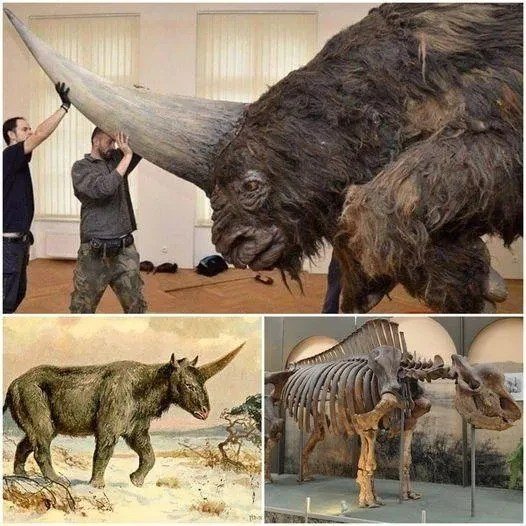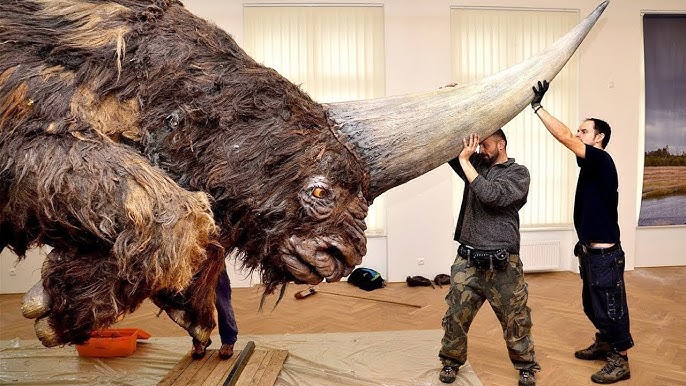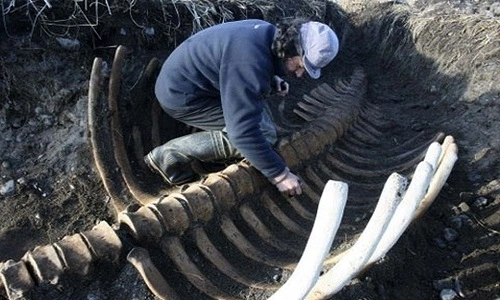Recent carbon dating has revealed a stunning truth: “The ‘Siberian Unicorn’ Walked Among Humans.”
A new wave of advanced carbon dating has revealed a stunning truth that challenges our understanding of prehistory: the “Siberian Unicorn” didn’t vanish into the mists of time 350,000 years ago as previously believed. Instead, this magnificent, shaggy-haired rhinoceros, a species known as Elasmotherium sibiricum, walked among early humans and Neanderthals as recently as 39,000 years ago. This groundbreaking discovery, made possible by a re-evaluation of fossil specimens from museums across the globe, places the extinction of this beast squarely within the late Quaternary megafaunal extinction event, a period of massive die-offs that also claimed the woolly mammoth and saber-toothed cat.

The revised timeline not only proves that our ancestors were contemporaries of this formidable, four-ton beast but also adds a crucial missing piece to the puzzle of its demise. While some have speculated that human hunting pressure may have driven the Siberian unicorn to extinction, the latest research suggests a different story. Analysis of the creature’s teeth indicates it was a highly specialized grazer, feeding almost exclusively on tough, dry grasses. As the climate shifted and the vast grasslands of Eurasia were replaced by new vegetation, the Siberian unicorn’s narrow diet and limited geographic range made it particularly vulnerable.

This revelation is more than just a chronological update; it’s a profound re-imagining of a shared ancient world. The existence of a giant, one-horned beast alongside early humans and Neanderthals offers a plausible explanation for the enduring legend of the unicorn, a myth that has persisted across cultures for millennia. While there is no definitive archaeological evidence of human-unicorn interaction, the new carbon dates make it highly likely that our ancestors encountered this real-life mythical creature. The “Siberian Unicorn” was not a fantasy but a tangible, awe-inspiring part of the landscape, a reminder of a past filled with wonders we are only just beginning to uncover.
